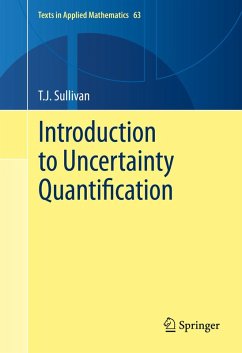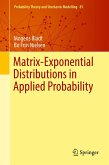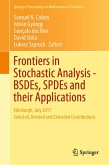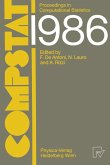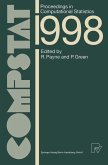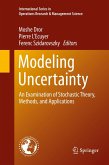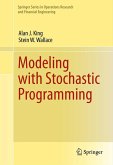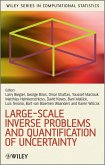Uncertainty quantification is a topic of increasing practical importance at the intersection of applied mathematics, statistics, computation, and numerous application areas in science and engineering. This text provides a framework in which the main objectives of the field of uncertainty quantification are defined, and an overview of the range of mathematical methods by which they can be achieved. Complete with exercises throughout, the book will equip readers with both theoretical understanding and practical experience of the key mathematical and algorithmic tools underlying the treatment of uncertainty in modern applied mathematics. Students and readers alike are encouraged to apply the mathematical methods discussed in this book to their own favourite problems to understand their strengths and weaknesses, also making the text suitable as a self-study. This text is designed as an introduction to uncertainty quantification for senior undergraduate and graduate students with a mathematical or statistical background, and also for researchers from the mathematical sciences or from applications areas who are interested in the field.
T. J. Sullivan was Warwick Zeeman Lecturer at the Mathematics Institute of the University of Warwick, United Kingdom, from 2012 to 2015. Since 2015, he is Junior Professor of Applied Mathematics at the Free University of Berlin, Germany, with specialism in Uncertainty and Risk Quantification.
T. J. Sullivan was Warwick Zeeman Lecturer at the Mathematics Institute of the University of Warwick, United Kingdom, from 2012 to 2015. Since 2015, he is Junior Professor of Applied Mathematics at the Free University of Berlin, Germany, with specialism in Uncertainty and Risk Quantification.
Dieser Download kann aus rechtlichen Gründen nur mit Rechnungsadresse in A, B, BG, CY, CZ, D, DK, EW, E, FIN, F, GR, HR, H, IRL, I, LT, L, LR, M, NL, PL, P, R, S, SLO, SK ausgeliefert werden.
"Book is one of very few that discuss a vast array of topics in the developing field of uncertainty quantification (UQ). ... The text is mathematically rigorous, and though the intended audience is the senior undergraduate or early graduate mathematics student ... . this is a book I might recommend to students as a reference for topics related to UQ ... . Overall, this introduction to UQ leaves something to be desired. It is well written ... ." (Talea L. Mayo, SIAM Review, Vol. 59 (1), March, 2017)
"This book presents a collection of mathematical results related to Uncertainly Quantification (UQ). It is intended as a textbook for senior undergraduate or graduate students with a background in mathematics and statistics. ... The book might be suitable for a research seminar where students are exposed for the first time to the mathematics behind UQ." (Elisabeth Ullmann, Mathematical Reviews, February, 2017)
"This book aims to provide an introduction to the mathematics of the quantification of uncertainty. It is intended for students in mathematics and statistics. In the US this would be a graduate level textbook." (William J. Satzer, MAA Reviews, maa.org, February, 2016)
"This book presents a collection of mathematical results related to Uncertainly Quantification (UQ). It is intended as a textbook for senior undergraduate or graduate students with a background in mathematics and statistics. ... The book might be suitable for a research seminar where students are exposed for the first time to the mathematics behind UQ." (Elisabeth Ullmann, Mathematical Reviews, February, 2017)
"This book aims to provide an introduction to the mathematics of the quantification of uncertainty. It is intended for students in mathematics and statistics. In the US this would be a graduate level textbook." (William J. Satzer, MAA Reviews, maa.org, February, 2016)

